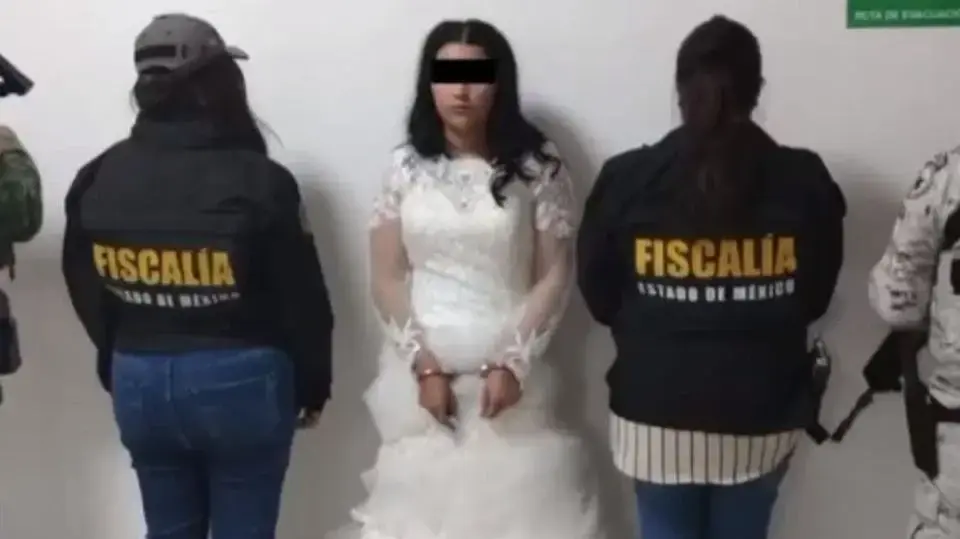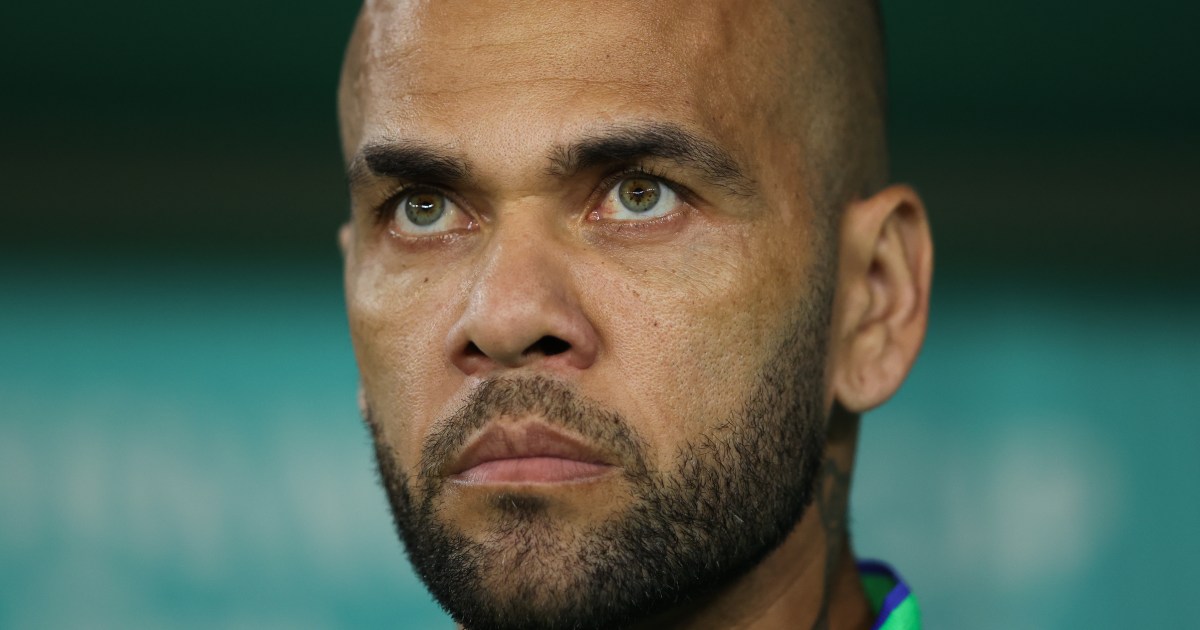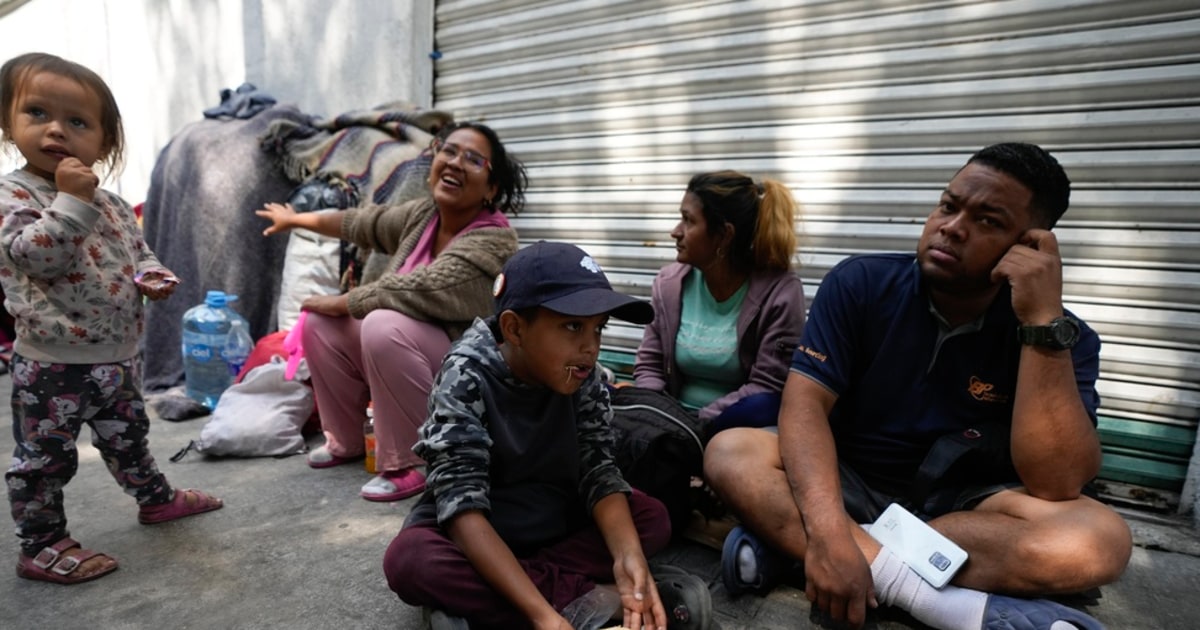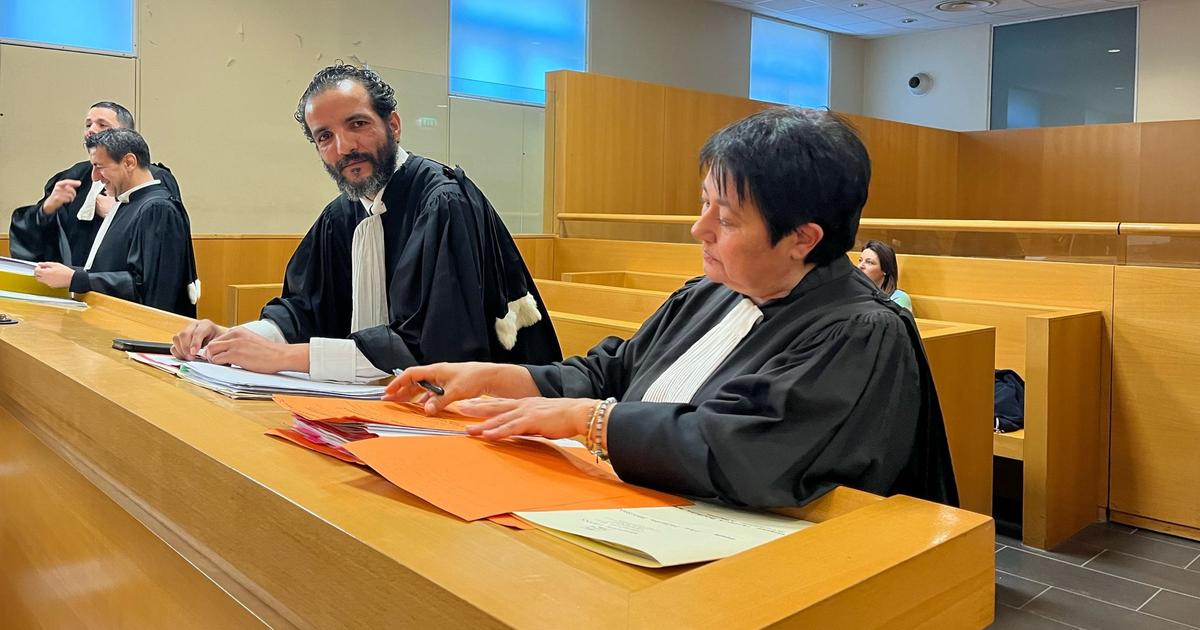Angélica *, 15, spent 11 days in a jail in a small town in the state of Guerrero, Mexico, with her three little sisters and her grandmother, after fleeing her husband's family home because her father-in-law he had tried to rape her repeatedly, her family denounced.
The teenager was bought in marriage for about $ 10,200 (213,000 Mexican pesos), and the community police officers were not going to release her until the invested money was returned to her father-in-law.
"
The father-in-law believes he is the owner of the girl's life because he has paid for her,
" explained Viridiana Gutiérrez, coordinator of the Citizen Observatory of Violence against Women of Guerrero, to Noticias Telemundo.
A teenager works with her family in the Metlatonoc community, in the state of Guerrero, where the abusive practice of selling indigenous girls in marriage persists.
PEDRO PARDO / AFP via Getty Images
In this indigenous region of the Guerrero mountains, some customs, such as the marriage dowry, give rise to abuse and crime amidst a pressing structural poverty for families.
"It is as if the will of the girls acquired them as property of life and subjected them to sexual and domestic practices," said Gutiérrez.
Angélica is not an exceptional case in the southwestern Mexican state, nor in the region
.
In Latin America and the Caribbean, forced child unions are recurrent, according to a report by the humanitarian organization Plan International.
In 2019, Mexico registered close to 61,000 marriages of adolescents between the ages of 15 and 19, more than 3,500 in Guerrero, the vast majority of whom were girls, according to the Regional Observatory of Latin America and the Caribbean: the Reality of Girls, which It has statistics from 79 official sources from 13 countries published this Monday.
Meanwhile, in the Civil Registry of Brazil, about 24,000 adolescent marriages were registered in 2019, 91% women.
And in El Salvador, more than 17,600 girls ages 12 to 17 counted in the census household survey that they were married or in a union.
Of these, 334 were between 12 and 14 years old.
"It was my dad's decision": Ofelia was sold to her husband for $ 2,000 when she was just a child
May 26, 202102: 07
"For a long time,
we have wanted to think that forced marriages and unions occurred in Africa, in Asia, but it happens in our countries,
" said Amalia Alarcón, regional manager of Gender and Influence Transforming Programs of the organization, in an interview with Noticias Telemundo.
Angélica MV is an indigenous Na Savi (Mixtec) from the community of Joya Real, made up of less than 100 adobe homes in a mountainous area where many do not speak Spanish, within the municipality of Cochoapa el Grande.
When she was 11 years old, she was married to a young man from the community
, who emigrated to the United States in search of a job opportunity, leaving her with her parents.
The teenager recently fled her father-in-law's house after four attempts of sexual abuse by the man, according to the mother and family.
At the end of September, the Dos Ríos Community Police detained the girl and six members of her family, including her grandmother and three sisters aged 8 and 6, at the community justice house, according to a statement from the Guerrero State Prosecutor's Office.
It is not the first time that the police have been involved in forced marriages and the perpetuation of violence.
Almost a year ago, the Guerrerense Network for Women's Rights denounced a series of cases in which the authorities were witnesses and accomplices of the sale and rape of minors in the mountains of Guerrero and of pregnancies of girls between 11 and 15 years old.
"
The authorities ignore the warnings, they do not investigate with a gender perspective,
they do not have comprehensive care policies that guarantee non-re-victimization and non-repetition," Gutiérrez explains.
Those who have to be there protecting girls are not only not protecting but they are validating, recognizing these practices and supporting them "
amalia alarcón PLAN INTERNATIONAL
The absence of the authorities is precisely one of the keys to forced unions and violence against girls in Latin America.
"Those who have to be there protecting the girls, not only are they not protecting but they are validating, recognizing these practices and supporting them," warns Alarcón, from Plan International.
In order for her to be released, her father-in-law demanded that the alleged payment of her marriage, 10,200 dollars (213,000 Mexican pesos), be reimbursed.
The family disagreed: they said they had received half, about $ 5,750 (120,000 pesos).
The community police finally forced the father to sign a blank promissory note.
But that was not what made the case known.
"
Returning the money for the purchase of a girl is normal, and sometimes imprisonment comes while the amount is obtained
," Misael Damián de la Cruz, a journalist specializing in indigenous rights in the region who covered the issue, told Noticias Telemundo. from the first day on the Voces de Guerrero page.
Cristina Moreno, 18, carries her baby in the Juquila Yuvinani community, in the state of Guerrero, Mexico, in May 2021. The families of the community try to end a practice that persists in 66 towns in the state: the sale of girls in marriage.
PEDRO PARDO / AFP via Getty Images
The outrage came after the adolescent's mother was attacked on Thursday, October 8, at the communal police headquarters, when she was going to bring her food, and suffered an abortion the next day, according to the family.
The woman knew then that she was expecting triplets.
Photos of the beaten mother and the case flooded the networks.
Two days later, on Sunday, the liberation of Angelica arrived.
For the girls to be released, the authorities of the Guerrero State Human Rights Commission (CDHEG), the Secretariat for Indigenous and Afro-Mexican Affairs (SAIA) and the Municipality of Cochoapa el Grande intervened, who established a dialogue table , as indicated in a statement.
Marriage is a decision that you do not make freely.
They are cornered "
Amalia Alarcón Plan International
The families agreed not to attack each other and
Angélica's father "will no longer sell his other daughters
and if that is the case, he will be subject to the legal provisions applicable to the case," says the page Voces de Guerrero.
It is also specified that the promissory note signed for the marriage is void "due to non-existence."
What happened was not a surprise in the region, lamented Damián de la Cruz, who covers the abuses suffered by the indigenous community, such as the violation of the rights of girls and the expulsions of community members for religious intolerance.
Although it was an extreme case: it brought together attempted abuse, sale and imprisonment of minors, injuries followed by abortion.
"It reflected the different types of violence that women and girls experience, who are in constant vulnerability, especially when they are indigenous," explained Gutiérrez.
Added to the violence are other factors such as economic difficulties, lack of work and access to education, which is why many girls aged 14 and 15 leave the family home.
"It is a decision that they do not make freely," Alarcón remarks, "they are cornered."
Angelica will receive psychological and medical assistance
and
CDHEG will follow up on the case, it was reported.
Meanwhile, the State Prosecutor's Office began an investigation into what happened.
"He didn't have much of a choice."
The drama of the sale of indigenous girls in Guerrero, Mexico
May 25, 202 102: 00
The teenager was taken with her mother to another town for safety, but activists explain that it is not the long-term solution, pointing out the need for public policies, prevention and monitoring of cases.
The lack of updated public data, by commune and categorized by age, in a dozen countries in Latin America and the Caribbean, makes it difficult to apply and evaluate these policies, said the manager of Plan International.
Then there is the mark of abuse in girls.
"
Violence happens to your classmate who one day does not return to school because she got pregnant, to your cousin who was forced to marry, to yourself
, who suffers it in the first person, and that makes a very deep dent in the girls' mental health, ”said Alarcón.
* The identity of Angélica and her family have been safeguarded to protect the victims and because it is an open court case.















